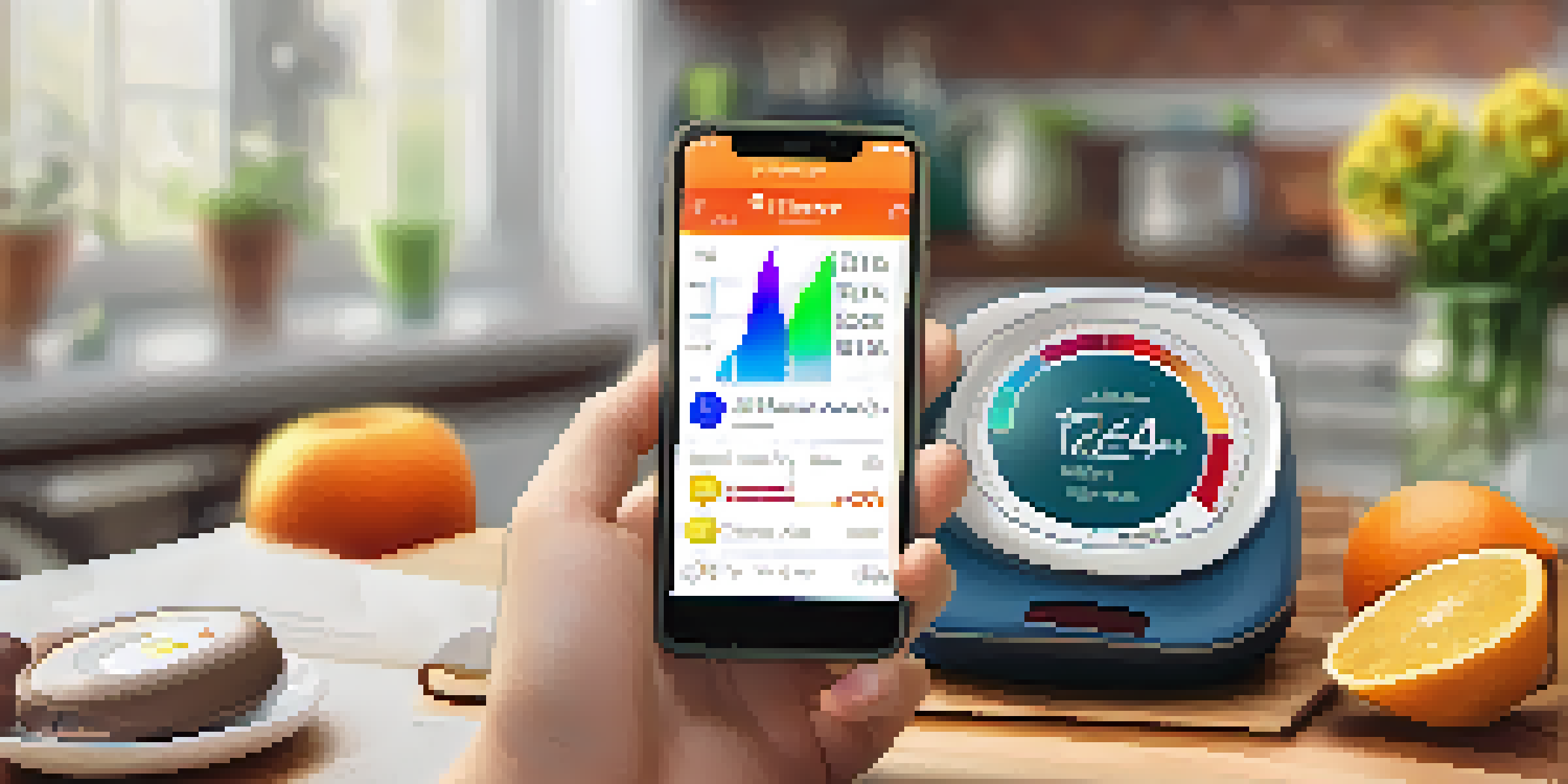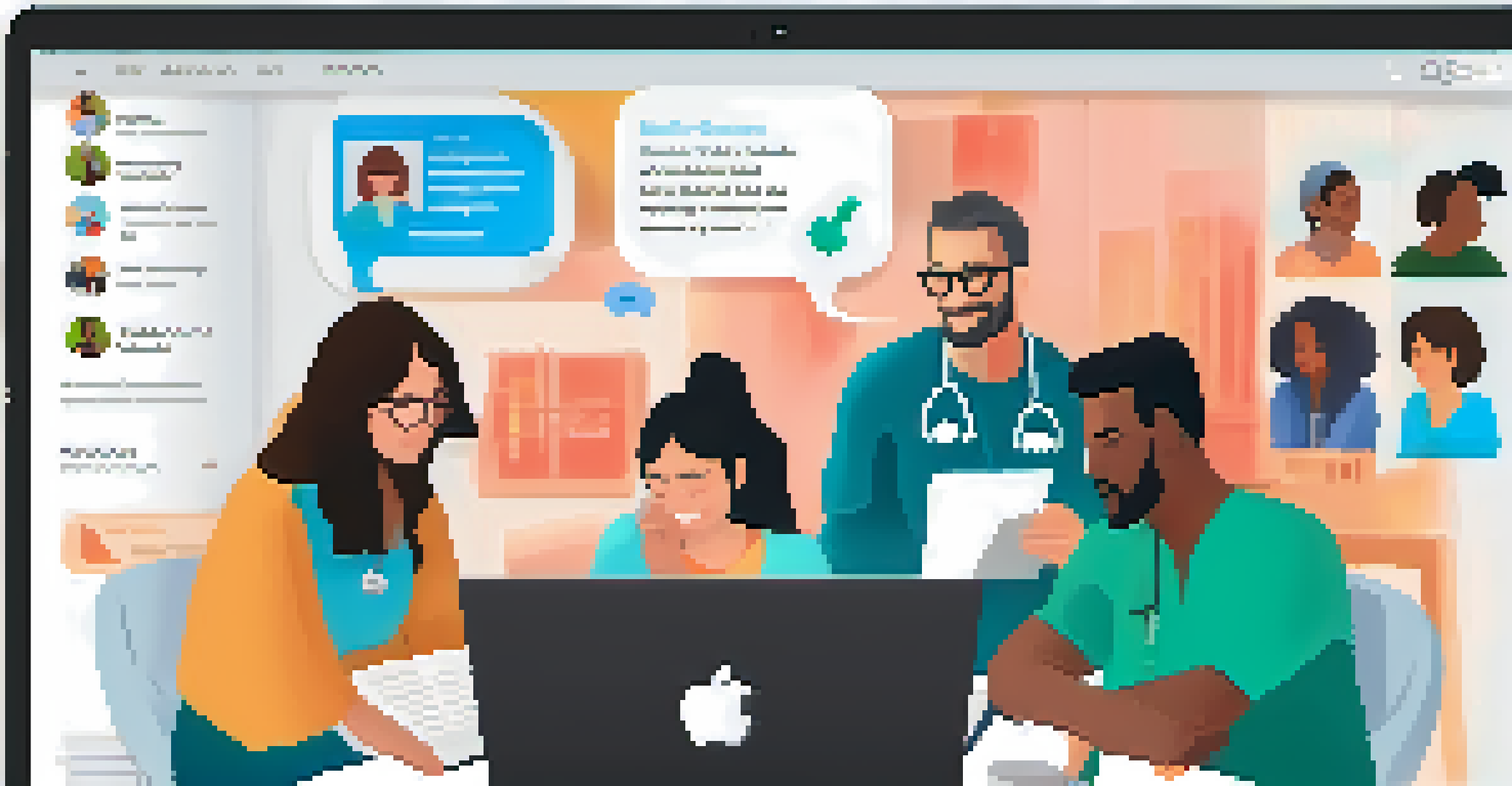Using Technology to Enhance Health Literacy Among Patients

Understanding Health Literacy in the Digital Age
Health literacy is the ability to obtain, process, and understand basic health information to make informed decisions. In today's digital age, technology plays a significant role in influencing how patients access and comprehend health-related content. With the rise of the internet and mobile apps, patients are increasingly turning to online resources for information about their health.
Health literacy is a key ingredient to ensure that patients can effectively navigate the healthcare system and make informed decisions about their health.
However, despite the wealth of information available, not all patients can navigate these resources effectively. This is where the concept of digital health literacy comes into play, which involves the skills needed to find, evaluate, and utilize health information online. Enhancing health literacy is crucial for empowering patients and ensuring they can engage actively in their healthcare.
By leveraging technology, healthcare providers can help bridge the gap between complex medical information and patient understanding. This can lead to better health outcomes, improved patient satisfaction, and a more informed patient population.
The Role of Mobile Apps in Health Education
Mobile health (mHealth) applications are revolutionizing health education by making information more accessible and engaging. These apps often include features such as symptom checkers, medication reminders, and educational content tailored to specific conditions. The interactive nature of these applications keeps patients engaged and encourages them to take an active role in their health.

For instance, a diabetes management app can provide patients with personalized tips, track blood sugar levels, and connect them with healthcare professionals. This not only enhances their understanding of their condition but also supports better day-to-day management. The convenience of having health resources at their fingertips empowers patients to make more informed decisions.
Digital Health Literacy is Crucial
In the digital age, enhancing health literacy empowers patients to effectively navigate health information online.
Moreover, mobile apps can also facilitate communication between patients and healthcare providers. This direct line of communication can help clarify doubts, leading to a better understanding of treatment plans and necessary lifestyle changes.
Telehealth: Making Healthcare More Accessible
Telehealth has emerged as a game-changer, particularly in enhancing health literacy among patients who may have difficulty accessing traditional healthcare services. By allowing patients to connect with healthcare professionals remotely, telehealth removes barriers such as travel time and costs. This is particularly beneficial for those living in rural areas or with mobility issues.
The future of healthcare lies in empowering patients through technology and education, making them active participants in their own health journeys.
Through virtual consultations, patients can ask questions in real-time, clarify their understanding of diagnoses, and receive tailored health education materials. This personalized approach fosters a more collaborative relationship between patients and providers, leading to better health literacy outcomes.
Furthermore, telehealth platforms often include educational resources and tools to help patients better understand their conditions. This integrated approach not only supports immediate healthcare needs but also promotes ongoing learning and empowerment.
Online Communities: Building Support Networks
Online health communities have become vital in providing support and information for patients. These platforms allow individuals facing similar health challenges to connect, share experiences, and exchange valuable information. By participating in these communities, patients can gain insights that may not be available through traditional healthcare channels.
For example, cancer support forums often feature discussions about treatment options, side effects, and coping strategies. This peer-to-peer interaction can be incredibly informative and reassuring, fostering a sense of belonging that is crucial for emotional well-being. Participants in these communities can learn from one another, enhancing their understanding of their health conditions.
Mobile Apps Enhance Patient Engagement
Mobile health applications provide personalized support, making it easier for patients to manage their health.
Moreover, many online communities are moderated by healthcare professionals who can provide expert advice and ensure that the information shared is accurate. This blend of peer support and professional guidance helps patients navigate their health journeys more effectively.
Interactive Health Tools: Engaging Patients in Learning
Interactive health tools, such as quizzes, videos, and simulations, can significantly enhance patient engagement and understanding. These resources allow patients to learn at their own pace and in a format that suits their learning style. By incorporating gamification elements, healthcare providers can make the learning process more enjoyable and less intimidating.
For instance, a video explaining a surgical procedure can help demystify the process and prepare patients for what to expect. Interactive tools can also assess a patient's understanding, providing immediate feedback and additional resources as needed. This tailored approach ensures that patients are not just passive recipients of information but active participants in their health education.
Furthermore, these tools can be integrated into patient portals, allowing for a seamless learning experience. By making health education more interactive and accessible, providers can greatly enhance health literacy.
Social Media: Spreading Awareness and Information
Social media platforms have become powerful tools for disseminating health information and raising awareness. Healthcare organizations and professionals can utilize these platforms to share educational content, promote health campaigns, and engage with patients directly. This accessibility helps demystify complex health topics and encourages open conversations.
For example, a hospital might use Twitter to share tips on managing chronic conditions or to answer common patient questions in real time. This not only keeps patients informed but also fosters a sense of community where individuals can learn from one another. The interactive nature of social media allows for immediate feedback and discussion, enhancing the learning experience.
Telehealth Expands Access to Care
Telehealth services improve health literacy by allowing patients to connect with healthcare providers remotely.
However, it's essential to ensure that the information shared on social media is accurate and reliable. By following reputable sources, patients can enhance their health literacy while also learning to critically evaluate the information they encounter online.
AI and Chatbots: Personalized Health Information
Artificial intelligence (AI) and chatbots are transforming the way patients access health information. These technologies can provide personalized responses to patient inquiries, guiding them to relevant resources and information based on their specific needs. For instance, a chatbot on a healthcare website can answer frequently asked questions about symptoms or medication side effects, making it easier for patients to find the information they need.
The use of AI in health literacy also extends to analyzing patient data to deliver tailored educational content. By understanding a patient's health history and preferences, AI can recommend resources that resonate with them, further enhancing their learning experience. This personalization makes health information more relevant and easier to comprehend.

While AI and chatbots can significantly improve access to information, it's important to remember that they should complement, not replace, human interaction. Patients should still feel encouraged to consult healthcare professionals for comprehensive understanding and guidance on their health journeys.